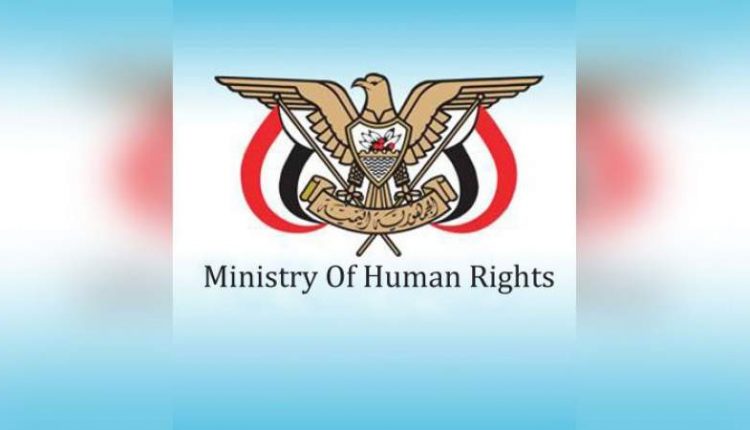Human Rights, Press Conference Explains Deterioration of Living Situation Due to Siege in Yemen
The Ministries of Human Rights and Social Affairs and Labor held a press conference, Saturday, on the severe deterioration of the living situation as a result of the siege of the US-Saudi aggression on Yemen.
“The siege of US-Saudi aggression caused the suspension of the salaries of more than one and a quarter million government employees,” the Ministry of Human Rights, Ali Al-Dailami, said.
Al-Dailami pointed out that the continuation of the siege has caused the cost of living to rise by more than 90% than it was before the aggression as a result of a serious deterioration in the level of income. He explained that the US-Saudi aggression prevented more than 40,000 traditional fishermen from practicing the fishing profession on the coasts of the Red Sea.
Al-Dailami pointed out that the blockade has caused families to be unable to obtain sufficient financial resources for basic needs, at a rate of more than 92% of the population. He stressed that half of the number of children in Yemen under the age of five are at risk of acute malnutrition, after the number of injured reached nearly 2.3 million children.
Al-Dailami indicated that the blockade suspended the provision of truce agreement on flights to and from Yemen and Egypt, and during the truce period, flights through Sana’a airport contributed only 2% of the total patients in need of treatment abroad.
“We warned the UN against exploiting the humanitarian situation for political pressure and that it will not achieve any military and security goals, but rather more suffering” The Acting Ministry of Human Rights said.
He also stressed that the catastrophic humanitarian situation that Yemen suffers from as a result of the aggression and siege has entered a dangerous phase of deliberate politicization by the international community.
“The siege has deprived 10 million poor and needy people of the assistance provided by the Social Welfare Fund” Minister of Social Affairs and Labor Obaid Salem bin Dbaye said.
In early April, after Yemen’s Supreme Political Council declared a voluntary and unilateral three-day pause in retaliatory strikes against targets in Saudi Arabia, the UN special envoy for Yemen, Hans Grundberg, announced the nationwide ceasefire, for the first time since 2015.
The deal stipulates halting offensive military operations, including cross-border attacks, and allowing fuel-laden ships to enter Yemen’s lifeline al-Hudaydah port and commercial flights in and out of the airport in the capital Sana’a “to predetermined destinations in the region .”
However, in light of UN silence, the Saudi-led aggression was still obstructing flights to the Sana’a International Airport in Yemen’s capital and detaining fuel ships that were headed to the country. The fires of the aggression side did not subside along the fronts, on the borders and inside, including shelling, reconnaissance, development and crawl.
In early June, the United Nations announced that Yemen’s National Salvation Government and the US-Saudi coalition have agreed to renew the two-month truce after days of negotiations and promises to fulfill the terms of the agreement.
The UN envoy noted that the truce was extended under the same terms as the previous one.
The United Nations continues to condone the crimes committed by the Saudi-led aggression. It only holds the coalition responsible for crimes when it seeks to blackmail the Kingdom and oblige it to pay millions of dollars. The UN is not concerned with the souls of the victims, as it provided cover for this aggression for years, and kept silent in the face of many of its criminal practices, whether through raids or sieges.
Saudi Arabia, backed by the United States and regional allies, launched the war on Yemen in March 2015, claiming the goal of bringing the government of former Yemeni president Abd Rabbuh Mansour Hadi back to power.
The US-Saudi aggression continues to target neighborhoods and populated areas and destroy the infrastructure and capabilities of the country, in light of a suspicious international silence.
The war has left hundreds of thousands of Yemenis dead and displaced millions more. It has also destroyed Yemen’s infrastructure and spread famine and infectious diseases there.

